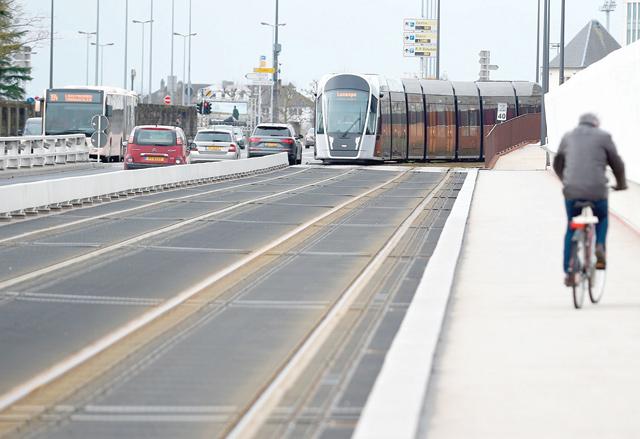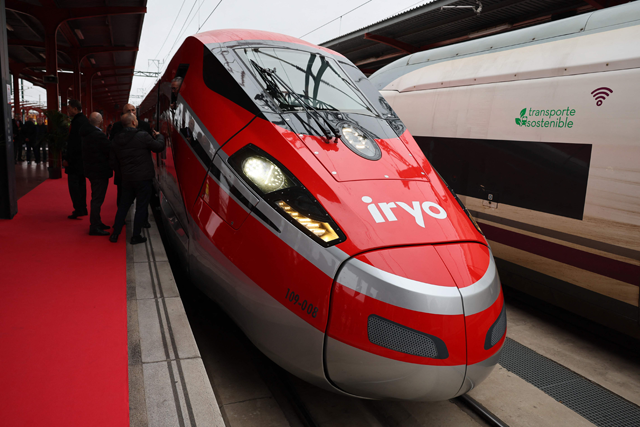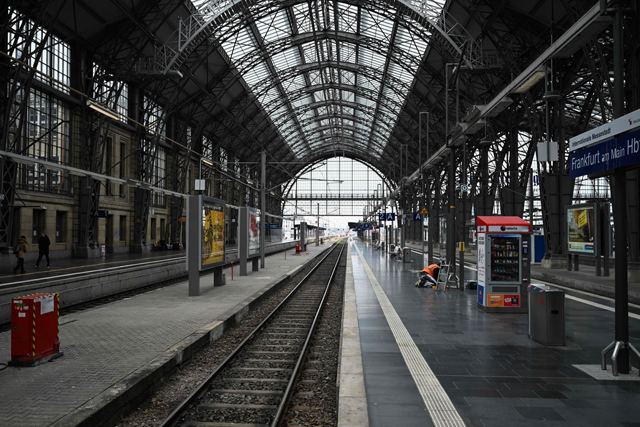You are here
Luxembourg becomes first country with free public transport
By AFP - Feb 29,2020 - Last updated at Feb 29,2020

Tramway and a bus are pictured in Luxembourg as the country inaugurates its free public transports policy on Saturday (AFP photo)
LUXEMBOURG — Luxembourg on Saturday became the first country in the world to offer free public transport, as the small and wealthy EU country tries to help less-well-off workers and reduce road traffic.
Some cities elsewhere have already taken similar, partial measures. But the transport ministry said it was the first time such a decision covered an entire country.
The free transport, flagged as "an important social measure", affects approximately 40 per cent of households and is estimated to save each one around 100 euros ($110) per year.
Not all passengers were aware of the change, which was brought forward one day ahead of schedule.
"It's free? I didn't know," said a woman in her 50s who gave her first name as Dominique as she waited at Luxembourg's main train station.
Transport workers were concerned about what impact the measure would have on their job security.
"We don't yet know" what will happen to their positions, said one ticket seller at the station who declined to give his name.
"All the public transport workers are worried. It's not yet clear."
Traffic woes
The measure is part of a plan intended to reduce congestion.
Private cars are the most used means of transport in the Grand Duchy, accounting for 47 per cent of business travel and 71 per cent of leisure transport.
With more than 200,000 people living in neighbouring France, Germany and Belgium who work in Luxembourg and most of them driving in, that makes for major traffic jams at peak hours.
The population of the tiny country is just 610,000 and those cross-border workers account for half the total employees.
The capital city of Luxembourg has invested in its public transport network, notably by building a tram network, but commuters complain it is still patchy.
It will be some years before the network links to the northern airport, for instance.
"There's been an enormous delay to the development of public transport," said Blanche Weber, head of the Luxembourg Ecological Movement pressing for better links on environmental grounds.
"Systematic and continuous investment is a sine qua non [essential] condition for promoting the attractiveness of public transport," admitted transport minister Francois Bausch.
Sales of tickets on the domestic network — which cost two euros per journey — previously covered just eight per cent of the 500-million-euro cost of running the transport system. That shortfall will now be met from the treasury.
Ticket machines are to be gradually removed from stations, but offices selling tickets for international train trips and for first-class seating in Luxembourg — which continues to be a paying service — will remain.
Related Articles
MADRID — Competition in Spain's high-speed rail market is heating up with a new operator starting passenger services on Friday, making it Eu
BERLIN — Hundreds of thousands of passengers in Germany faced travel misery on Thursday as rail and airport workers staged new strikes to ba
TEHRAN — Iran shut schools and apologised to tourists on Monday as its cities were hit by choking levels of air pollution. A blanket of


















